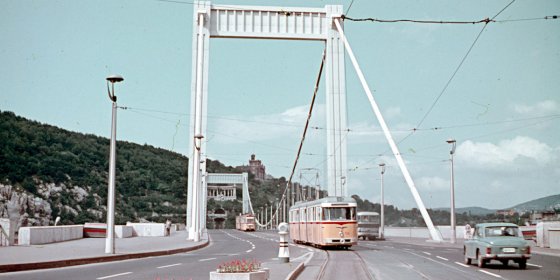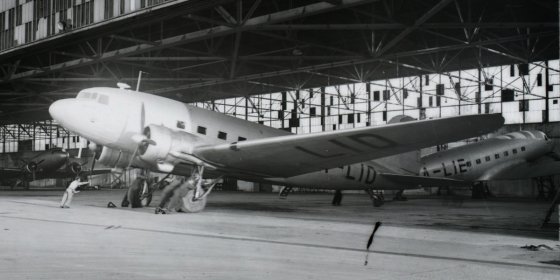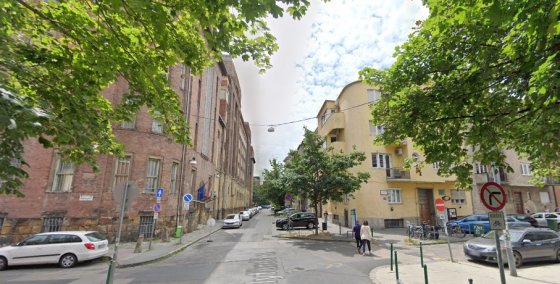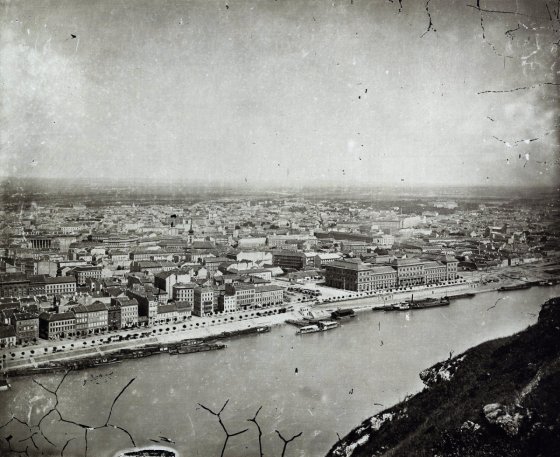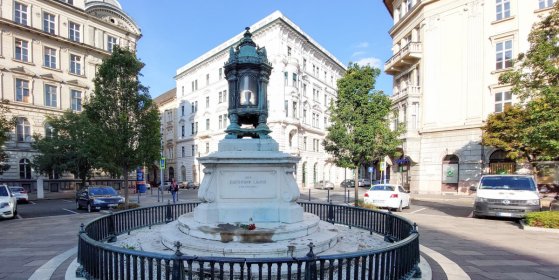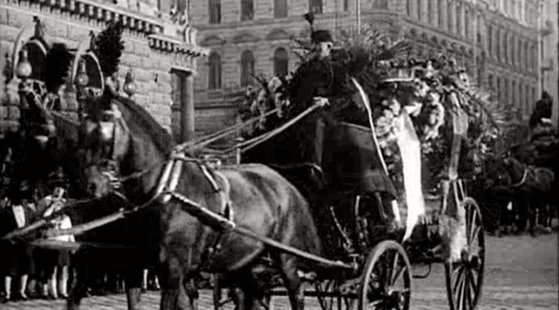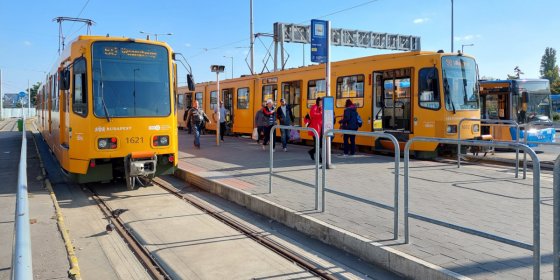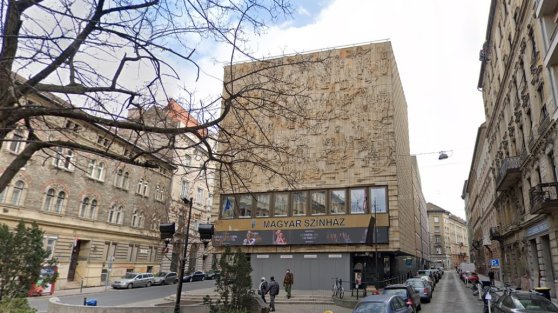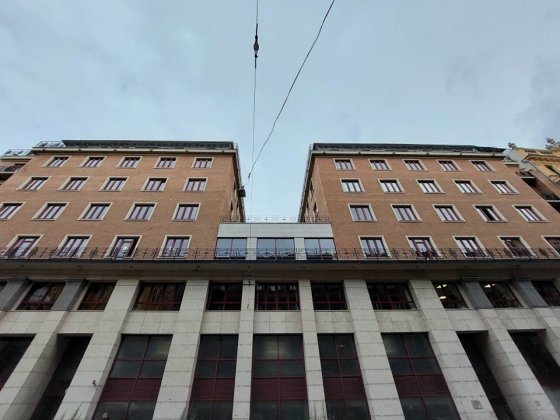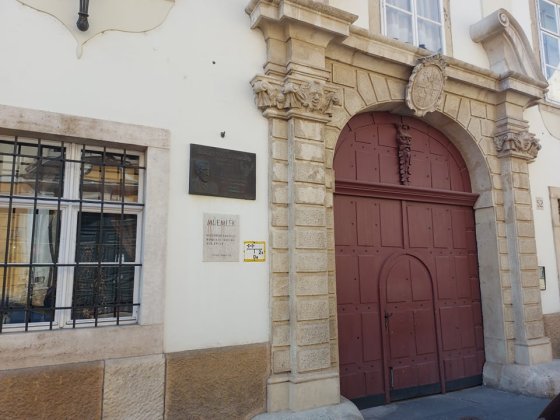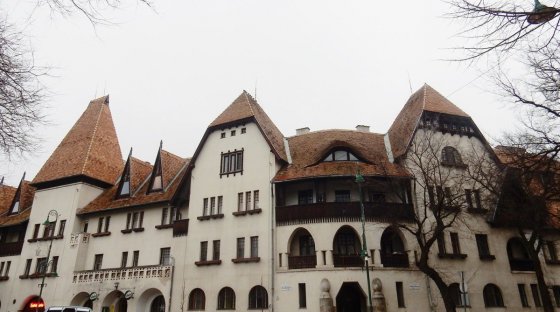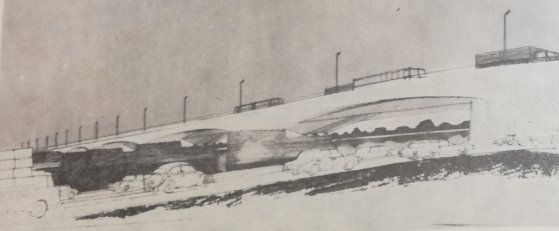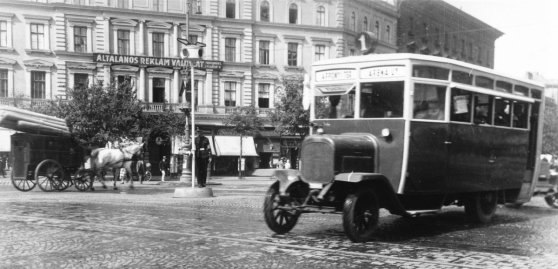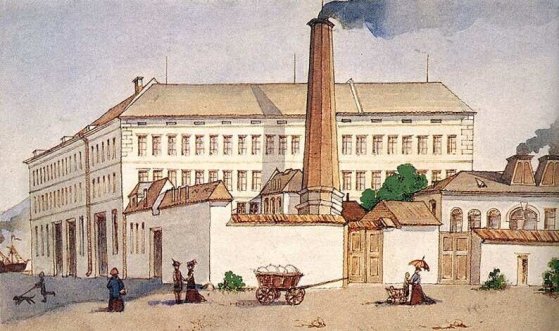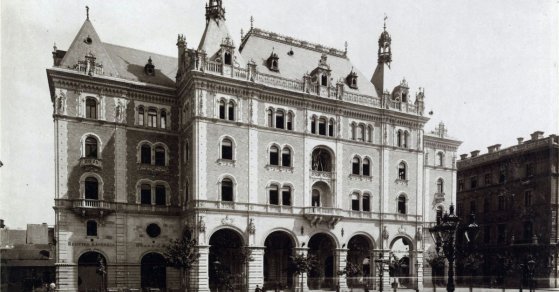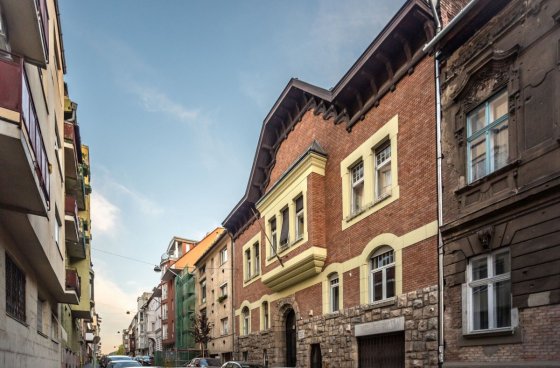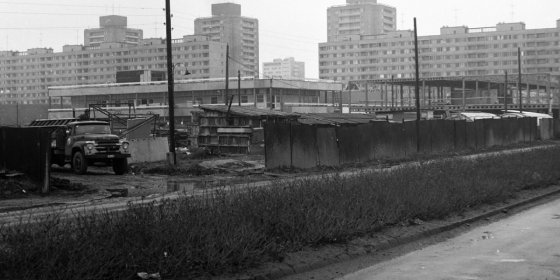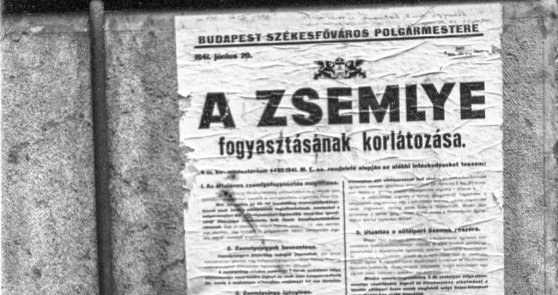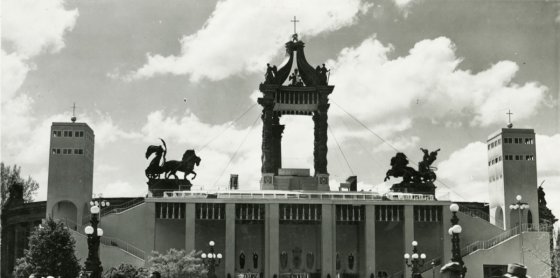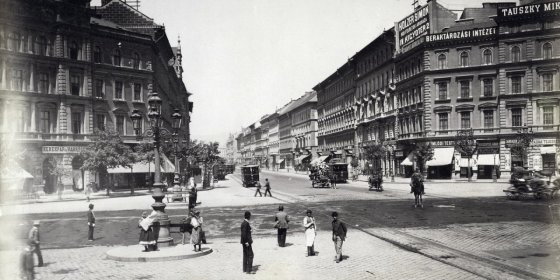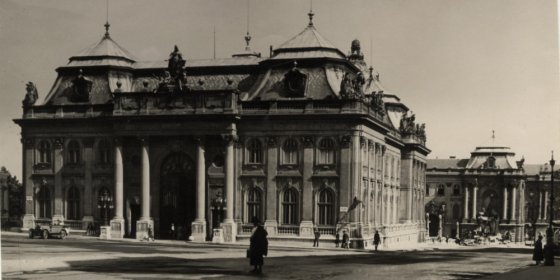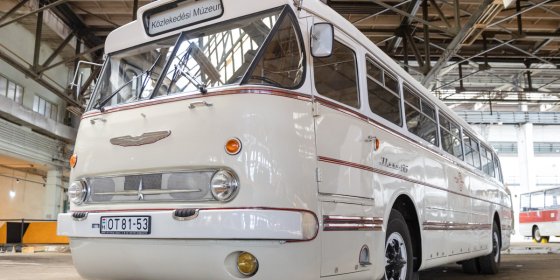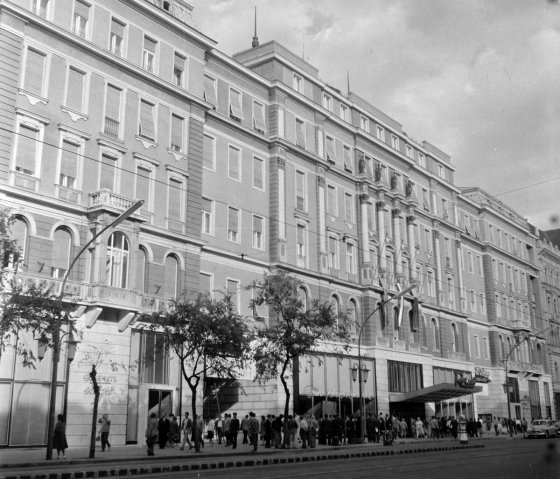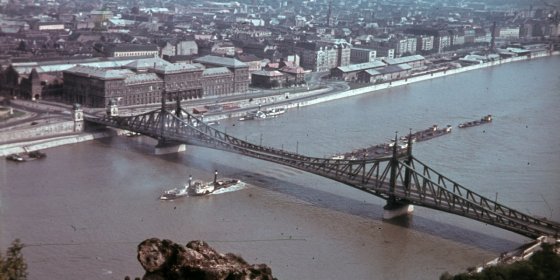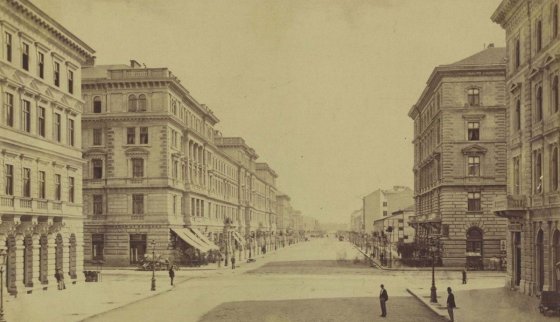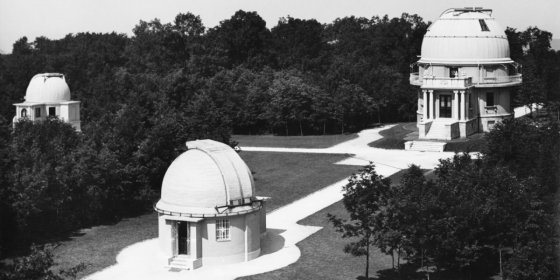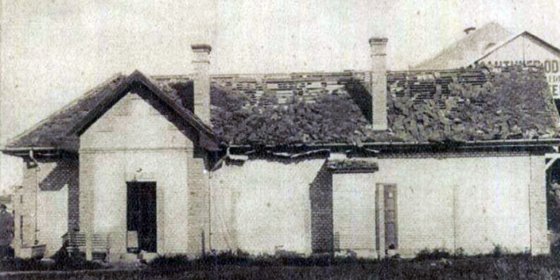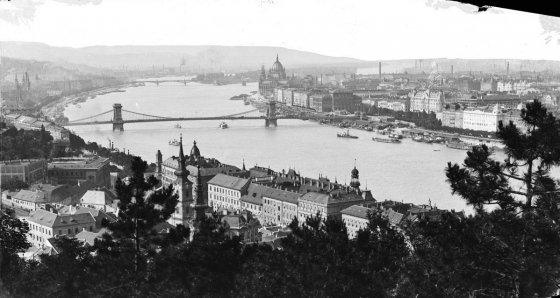 The „intertwined history” of the bridges and the city of Budapest
Which ideas and events have shaped the fate of bridges of Budapest and the cityscape? Alongside many other interesting facts, this question is also answered this newly published book by the Budapest City Archives, which introduces the history of bridges in Budapest.
The „intertwined history” of the bridges and the city of Budapest
Which ideas and events have shaped the fate of bridges of Budapest and the cityscape? Alongside many other interesting facts, this question is also answered this newly published book by the Budapest City Archives, which introduces the history of bridges in Budapest.
histories
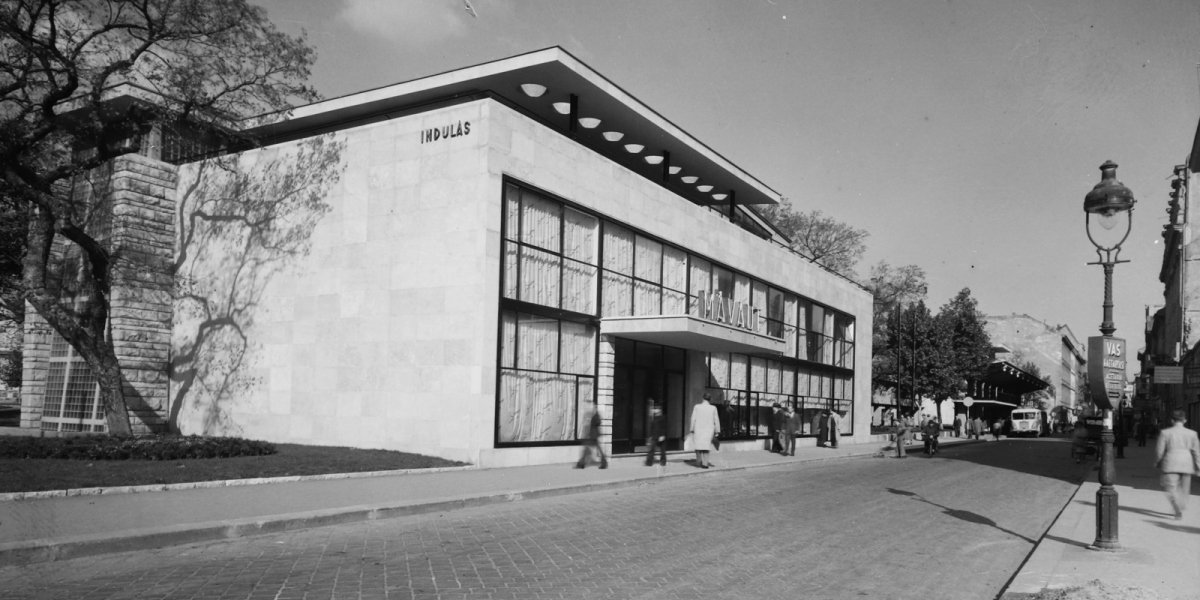 The Erzsébet Square bus terminus in the middle of the city centre had been closed for 20 years
The Erzsébet Square bus terminus in the middle of the city centre had been closed for 20 years
October 19, 2021 at 10:30 AM
The Erzsébet Square bus station has not departed and accepted buses for twenty years now. For much of the 20th century, it was still natural for buses to depart from central spaces that were easily accessible to all, but due to changes in urban development considerations, bus stations were pretty slowly pushed out of the inner city core. The Erzsébet Square bus station in the 5th District was also closed down.
The roaring Bengali - The first articulated trams were not a success in Budapest
October 17, 2021 at 9:00 AM
By the end of the 1950s, the existing trams in Budapest proved to be increasingly too small, so a new, more accommodating, articulated tram was built by Hungarian engineers, the Bengali. The recipe was simple, the type was spacious and shapely, yet the first articulated trams that appeared in Budapest were not clearly successful.
The first post-war domestic flight departed from Budapest 75 years ago
October 15, 2021 at 9:00 AM
Reconstruction after World War II also extended to transport networks. On the one hand, the railway also suffered from the war, and on the other hand, the existing capacities were tied up in the reconstruction, so part of the passenger transport was solved by planes. Domestic flights were launched on 15 October 1946 by Malév's predecessor, the Maszovlet company, and the first two planes could travel from Budapest to Debrecen and Szombathely.
Gyorskocsi Street in Buda preserves the name of a special means of transport
October 13, 2021 at 10:00 AM
Gyorskocsi Street in Buda preserves the history of the means of transport used in the 18th-19th century, before the spread of the railway, which made it possible to get from Buda to Vienna and back in the shortest time. But what was that particular gyorskocsi [diligence or stagecoach] like, who travelled by it, and how long did the trip take? You can read about that here.
When cyclists were also taxed in Budapest
October 9, 2021 at 11:00 AM
Budapest found itself in a difficult financial situation 115 years ago. Although cyclists and dog keeping were already taxed, water fees and tuition fees were raised, in 1906 it became clear that this was not enough to overcome the huge budget deficit. The government did not approve the planned additional tax burdens (such as the champagne tax and the card tax) and the new tax increases, but provided budget support to settle the capital's debt.
The eternal flame has been burning for ninety-five years at the execution site of Lajos Batthyány
October 6, 2021 at 9:00 AM
As early as the 1870s, it was decided that a memorial would be erected to Lajos Batthyány, who was executed in 1849, but while other statesmen received a statue, the martyrdom of the Prime Minister was commemorated with an eternal flame. The monument was built in 1926, and the inauguration of the eternal flame, which still stands today, took place on the day of the execution, on 6 October, with the participation of Governor Miklós Horthy and several public dignitaries.
The greatest Hungarian tragedienne, Mari Jászai died 95 years ago
October 5, 2021 at 8:00 PM
She was the grande dame of the National Theatre: from 1872 until she died in 1926, with a one-year omission, she was a member of the most important Hungarian theatre for a total of 53 years. She became a member of the company on Kerepesi Road (today's Rákóczi Road), she moved with them to the building of the People's Theatre, when the previous place was ordered to be demolished. Blaha Lujza Square eventually became the real home of the National and Mari Jászai, she was laid in state here and was accompanied from here on her last journey when she died 95 years ago.
Miracle in green: Liberty Bridge, one of the most beautiful ornaments of Budapest, is 125 years old
October 4, 2021 at 9:00 AM
Liberty Bridge is 125 years old. Budapest's shortest Danube bridge hides many interesting things. At the time of its handover, in the year of the millennium, Franz Joseph hammered the last silver rivet in, its colour has been blue and gray in addition to green, they wanted to demolish it once, and at its renovation before the regime change they placed back the historical Hungarian coat of arms cunningly.
Trams from Hanover have been operating in Budapest for 20 years
October 2, 2021 at 4:00 PM
After a long time in the rich tram park of Budapest, the first vehicles manufactured in Western Europe were the trams from Hanover with their characteristic opening staircases, which were put into traffic for the first time on 3 October 2001.
The National Theatre operated in Hevesi Sándor Square for 34 years
October 1, 2021 at 12:30 PM
When the old building of the National Theatre on Blaha Lujza Square was blown up on 15 March 1965, no one would have thought the institution would operate in a temporary location for three and a half decades. The National Theatre held its opening performance on 1 October 1966, in the building of the former Hungarian Theatre on Hevesi Sándor Square, and until 2000, it was the home of the company.
Simon Tolnai, the Hungarian press magnate built a press empire from scratch in Dohány Street
September 28, 2021 at 9:30 AM
Pestbuda rarely reveals behind-the-scenes secrets of their editorial staff, now they make an exception: when researching the past of Budapest, journalists often look for information or photos in the Tolnai Világlapja newspaper. The first issue of the newspaper was published 120 years ago, on 28 September 1901. Its founder, Simon Tolnai, built his huge press empire from scratch, centred first in the demolished Orczy House on Károly Boulevard and then in Dohány Street. The latter still stands today, operating as an office building.
Africa researcher, hunter and writer Zsigmond Széchenyi was evicted from the Buda Castle
September 27, 2021 at 9:00 AM
One might think that the life of a world traveller and Africa researcher is enviable. However, this is not necessarily the case with Zsigmond Széchenyi: one of the most significant Hungarian travellers and hunters of the 20th century was dragged and evicted from the Buda Castle by the communist regime. As part of the ‘One with Nature’ World of Hunting and Nature Exhibition, an exhibition of his photographs taken during the expeditions will open at the Capa Centre in Budapest.
Wekerletelep in Kispest also preserves the memory of the prime minister who passed away a hundred years ago
September 26, 2021 at 9:30 AM
Wekerletelep with its special atmosphere is located in Kispest. Its smaller and larger houses form this fairytale-looking part of the city in a uniform style, arranged in streets that are inexplicable for an outsider, but are in a regular order. Its creation was initiated by Sándor Wekerle, one of the most prominent Hungarian prime ministers, who passed away a hundred years ago.
Fifty years ago, a highway bridge was designed on the edge of the inner city
September 25, 2021 at 10:00 AM
Increasing car traffic has been a problem in the capital for decades. It even come up in the early 1970s that a a huge highway bridge should be built on the Danube in the Lágymányos area. If that planned bridge had been realized, we would be living in a different Budapest today.
A hundred years ago, bus traffic in Budapest resumed
September 23, 2021 at 10:00 AM
In Budapest, after the First World War, bus traffic did not start again until 1921. One hundred years ago, electric vehicles first transported passangers between the Aréna, i.e. today’s Dózsa György Road and Apponyi Square, today's Ferenciek Square. Although many considered the racing vehicles to be a luxury, in the end bus transport gained a raison d’être in the capital.
The first steam mill in Pest started significant industrial development - the József Rolling Mill started operating 180 years ago
September 22, 2021 at 9:00 AM
Today it is difficult to imagine, but once the first steam mill in Pest was built and operated in Lipótváros, in the area bordered by today's Bálint Balassi - Béla Stollár - Falk Miksa and Balaton Streets, which started operating on 22 September 1841. However, the József Hengermalom [Rolling Mill] was more than a simple mill. The modern plant established on the initiative of István Széchenyi was not financially successful, but as a result the milling industry and the machine industry also started to develop significantly. Pest in the second half of the 19th century became a major power of the milling industry.
World-famous architects in Budapest
September 19, 2021 at 9:30 AM
In 1930, Budapest hosted the 12th International Congress of Architects, which was attended by architects from all over the world. As an accompanying event to the triennial event, a large-scale architectural design exhibition was held in Budapest, which was open to the public between the 6th and 16th of September 1930.
Ferenc Ripka, born 150 years ago, was mayor of Budapest but his name is hardly known
September 14, 2021 at 9:00 AM
The name of Ferenc Ripka has been hardly known, although for eight years, between 1924 and 1932, he was the head of Budapest. As one of the most influential mayors of the period between the two world wars, he did much to improve the public health system of the capital. Today, his memory is preserved by a street in Óbuda and a plaque in his former residence, Gellérthegy Street.
A new department store can replace the more than 40-year-old service house in Kelenföld
September 13, 2021 at 9:00 AM
In the early 1970s, people living in a housing estate in Kelenföld often complained about the lack of services, and in the second half of the decade, a service house was built to remedy this. It had almost everything needed on the two levels. The now obsolete building on the corner of Tétényi Road - Etele Road is now being sold by the municipalities of the capital and the 11th District, and a service house would be built again on the site.
Bread and flour stamps were introduced 80 years ago in Budapest
September 9, 2021 at 10:00 AM
Although Budapest was seemingly peaceful in 1941, the effects of the war were already being felt. Meat consumption and the use of cars were restricted. Sugar and fat could only be bought on ration stamps from 1940, and 80 years ago, flour and bread stamps were introduced. This restriction affected Budapest and the surrounding area in September 1941.
A little Rome in Budapest - The main altar of St Peter's Basilica was built in Heroes' Square in 1938
September 8, 2021 at 10:00 AM
The 52nd International Eucharistic Congress is taking place in Budapest these days, which one of the largest events in the Catholic Church. It is always a great honour for the city to host the event, and Budapest is lucky enough to host it for the second time. For the first time, in 1938, the organisers expressed their gratitude to the Vatican for the opportunity by building the main altar of St Peter's Basilica in Heroes' Square.
The Outer Ring Road was inaugurated 125 years ago - Budapest's main road was opened on Hungary's millennium
September 4, 2021 at 10:00 AM
Today, Outer Ring Road is one of the busiest roads in Budapest, lined with beautiful residential houses. Its construction lasted for 25 years, to open it, houses had to be demolished, a railway station had to be moved away, an area had to be filled, but finally, 125 years ago, on 31 August 1896, the Budapest Public Works Council could officially hand it over to the Budapest community.
Budapest then and now – 6 photos showing how much the cityscape has changed over a century
August 31, 2021 at 9:00 AM
The change in Budapest can be surprising when looking at old pictures: the former riding hall behind the National Museum, the New Building (Újépület) on the site of the current Szabadság Square, the disappeared houses of Pest and Buda downtown, the former splendour of the Buda Palace, and the beautiful historic buildings which stood on the site of the series of hotels along the Danube. What has changed and what is constant? Take a look at the six pictures Pestbuda collected.
The Ikarus 66 was an iconic piece of Hungarian bus production – Now we can see it renovated in the Museum of Transport
August 28, 2021 at 12:00 PM
A special bus was presented to the general public yesterday by the Museum of Transport: one of the last ten Ikarus 66 models produced. The vehicle was exhibited after several years of restoration in Kőbánya, in the Diesel Hall of the former Northern Locomotive Workshop. Budapest once expected these Ikarus buses to make transportation faster and more convenient, but passengers in the capital found them uncomfortable.
Where Mór Jókai and Johann Strauss Jr. met - A fire destroyed the German Theatre in Lipótváros
August 27, 2021 at 12:30 PM
At 24 Báthory Street, 5th District, it can be found out only from a memorial plaque that the German Theatre of Pest once stood here. This was already the third venue for German acting in Pest, but the theatre could not function here for a long time either. Twenty years after its opening, on 20 December 1889, a fire destroyed the building, in which Mór Jókai also turned, and an operetta written from his work was even performed here.
The luxury hotel was designed for tourists from the West - the Royal reopened 60 years ago
August 25, 2021 at 1:00 PM
The former legendary hotels of Budapest were almost completely destroyed in the Second World War and in the 1950s, and in the Rákosi era, no money was spent on building luxury hotels in the country, as there was no solvent demand for it. The situation changed after the defeat of the revolution and war of independence of 1956: tourists from the West and the currency they spent here became important to the country’s new leadership. Large-scale hotel developments began, among them one of the first was rebuilding the former luxury hotel, Royal, which reopened in August 1961.
It was rebuilt, but its decoration and name were changed - the Liberty Bridge was handed over 75 years ago
August 23, 2021 at 9:30 AM
At the end of the spectacular fireworks held in Budapest on the occasion of the founding of the state, glowing Greek fires were started on the bridges, including the Liberty Bridge. At that moment, surely few thought it was the first bridge to be rebuilt after the devastation of World War II and handed over to traffic on 20 August 1946.
Inspired by the boulevards of Paris - in 1876 the present-day Andrássy Avenue was handed over
August 21, 2021 at 10:00 AM
The traffic between the inner city of Pest and the Városliget went through Király Street for a very long time. The narrow street was very crowded, as not only the normal traffic passed through here, but also those who wanted to go to the Városliget for a little refreshment. The Avenue [Sugárút in Hungarian], officially handed over 145 years ago, in 1876, today's Andrássy Avenue, along which lavish palaces were built in place of the one-storey houses, was made to aid this situation.
The sky over Budapest - the observatory was moved to Svábhegy because of Trianon
August 16, 2021 at 9:00 AM
The construction of the new Budapest Observatory began on Svábhegy a hundred years ago, which replaced the Ógyalla observatory lost with Trianon. Despite the initial difficulties, a European-level research center was set up in a few years near Normafa, where the skies of Budapest are still being viewed in the observatory's typical domed building.
A part of the city has become uninhabitable - We still do not know who blew up the Csepel munitions depot 95 years ago
August 14, 2021 at 9:30 AM
A large-scale explosion shook Csepel and the southern part of Budapest on 12 August 1926, at quarter to seven p.m. The disaster 95 years ago caused severe damage to houses in Csepel and Budafok: it broke the window panes, swept the tiles off the roofs. Fortunately, the explosion did not claim human lives, the blaze and sound of which could be seen and heard throughout Budapest.
More articles
 The „intertwined history” of the bridges and the city of Budapest
Which ideas and events have shaped the fate of bridges of Budapest and the cityscape? Alongside many other interesting facts, this question is also answered this newly published book by the Budapest City Archives, which introduces the history of bridges in Budapest.
The „intertwined history” of the bridges and the city of Budapest
Which ideas and events have shaped the fate of bridges of Budapest and the cityscape? Alongside many other interesting facts, this question is also answered this newly published book by the Budapest City Archives, which introduces the history of bridges in Budapest.
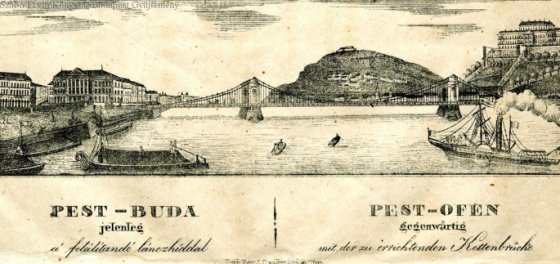 The Bridge Report, which brought a turning point in the history of Budapest
A travel report that changed the history of Pest and Buda, as well as Hungary. The little book contributed to the change of half a thousand years of legal customs and the implementation of an investment of unprecedented size and technical quality. This book was The Bridge Report [Hídjelentés in Hungarian].
The Bridge Report, which brought a turning point in the history of Budapest
A travel report that changed the history of Pest and Buda, as well as Hungary. The little book contributed to the change of half a thousand years of legal customs and the implementation of an investment of unprecedented size and technical quality. This book was The Bridge Report [Hídjelentés in Hungarian].
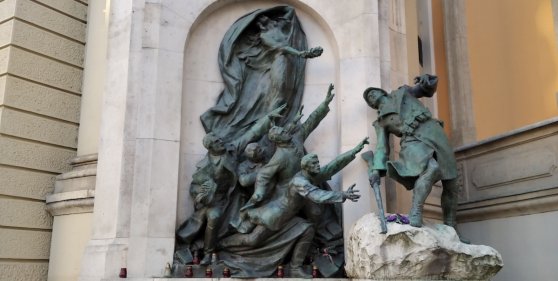 Drama on the university wall - The heroic monument was planned 95 years ago
In the constant hustle and bustle of the Egyetem Square in Pest, the students may not even notice the monument that decorates the short section of wall between the church and the central building of ELTE. However, it commemorates their predecessors, the heroes who fought for their country in World War I, and those who heroically helped them. The first design of the dramatically collapsing soldier was born in 1928, ninety-five years ago.
Drama on the university wall - The heroic monument was planned 95 years ago
In the constant hustle and bustle of the Egyetem Square in Pest, the students may not even notice the monument that decorates the short section of wall between the church and the central building of ELTE. However, it commemorates their predecessors, the heroes who fought for their country in World War I, and those who heroically helped them. The first design of the dramatically collapsing soldier was born in 1928, ninety-five years ago.

